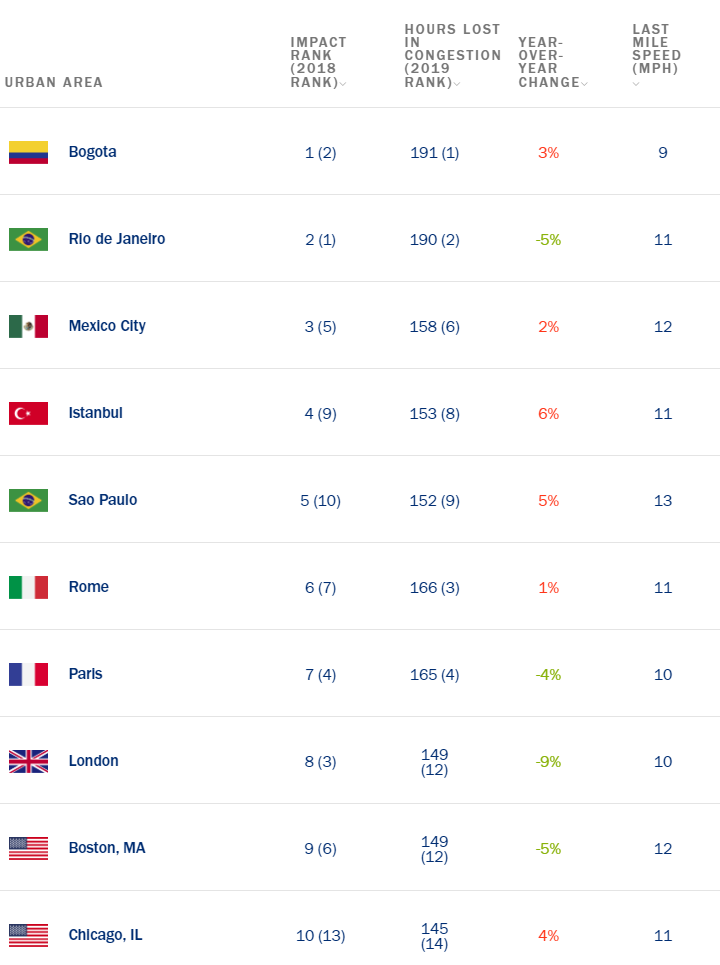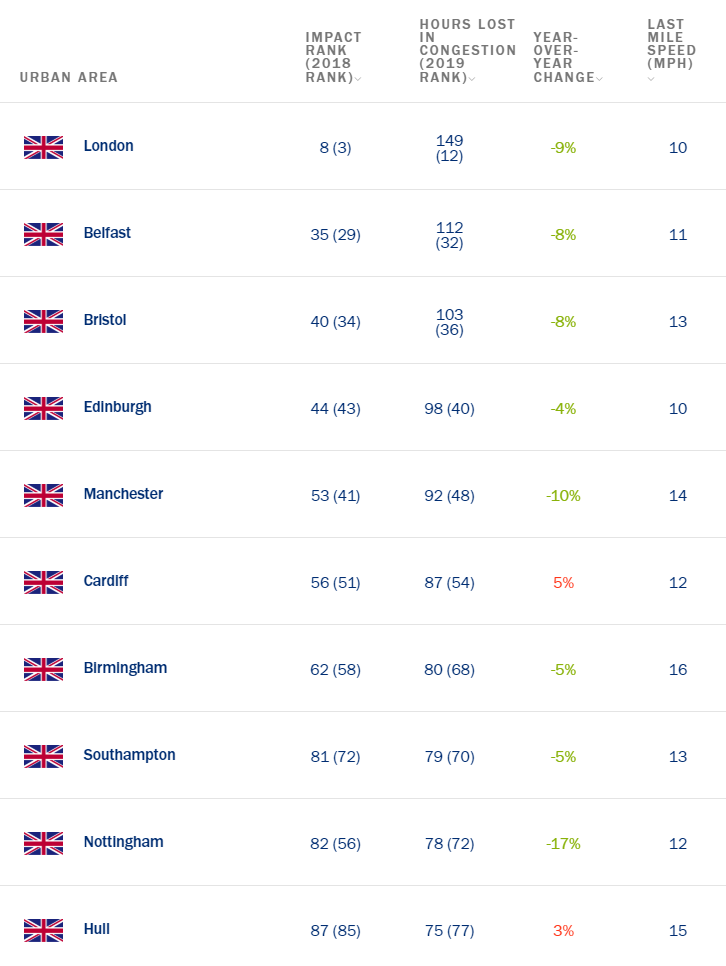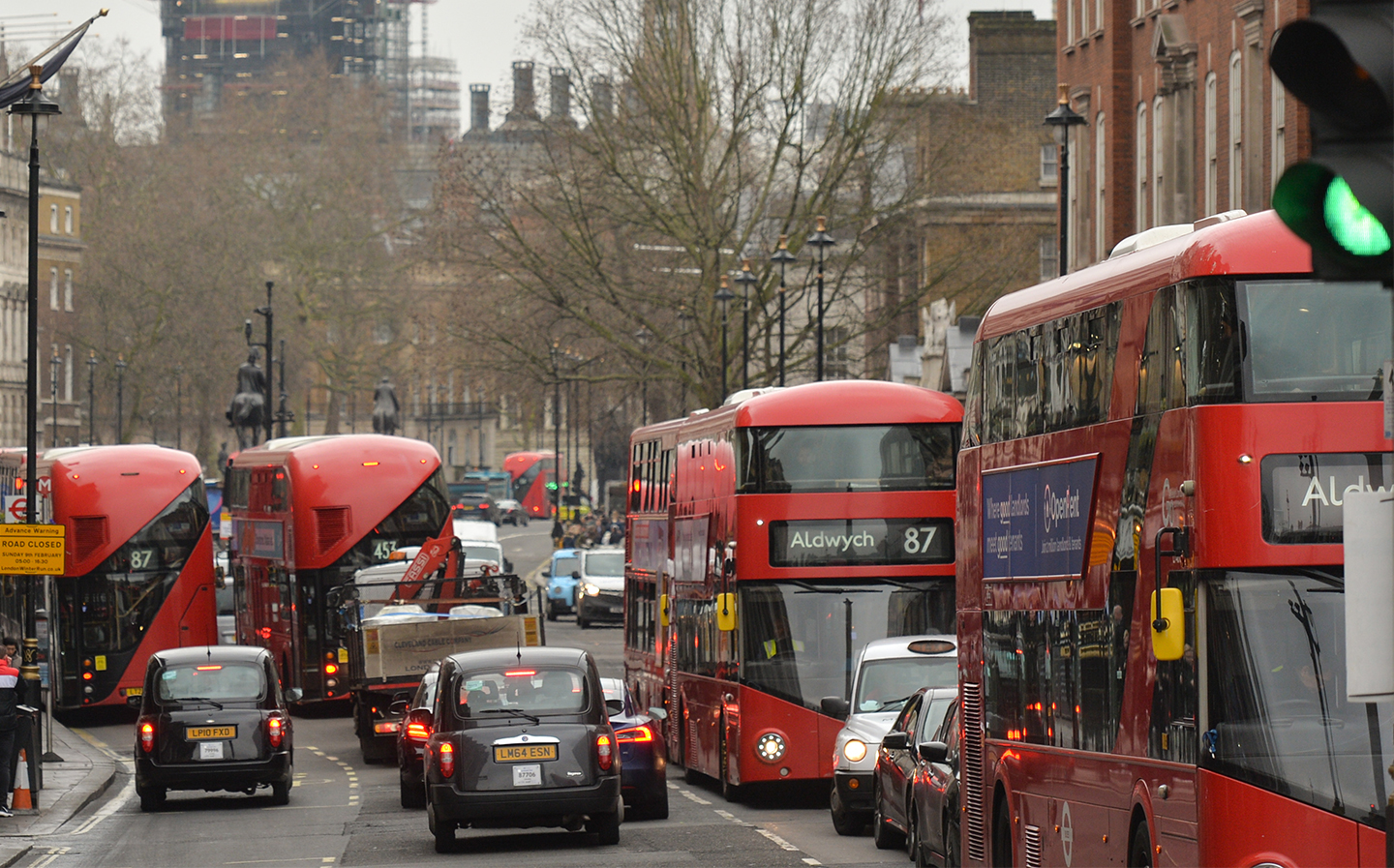Traffic costs UK economy £7bn per year, partly due to ancient road network
It may be costing you a lot in precious time, too
A NEW STUDY has found that drivers on Britain’s roads spent an average of 115 hours in traffic last year, costing the country £6.9bn — an average of £894 per driver — in wasted time.
The research, carried out by data and analytics company Inrix, pointed out that most of the UK’s cities predate the car by centuries and said London is unequipped to handle the 2.6m cars registered there.
London was found to be the UK’s most congested city, where drivers lost an average of 149 hours per year to traffic, with average speeds dropping as low as 10mph.
Despite London’s extensive public transport networks, 54% of London households have at least one car, according to data from Transport for London.
Car ownership, predictably, increases in outer London, where access to public transport is sparser.
London was the eighth most congested city in the world, higher than New York City and Boston. Three of the top five most congested cities were in South and Central America, with Brazil’s Rio de Janeiro and São Paulo coming in second and fifth respectively. No European cities came in the top five, although Rome and Paris came in sixth and seventh.

The Inrix report said that European cities were some of the most congested in the world, asserting again that this was due to “the vast majority of their growth occurring prior to the widespread adoption of the automobile.”
It also pointed out, however, that European cities were home to robust public transport networks as well as good walking and cycling routes. Denser cities that were built before the advent of cars, while tending to wreak more havoc for automobiles, are often better equipped for travelling using public transport.
Glynn Barton, TfL’s Director of Network Management, said that TfL was making efforts to quieten the roads by improving public transport, investing in technology to reduce the time taken to clear unplanned incidents, removing the congestion charge exemption for private hire vehicles and working closely with utility companies to make sure that roadworks are better coordinated.
He added: “The capital’s population has grown by almost a million people in the past 10 years alone, and around 800,000 people commute into the capital every day. At the same time, London’s funding from central Government has decreased by about 40% over the same period.”
Trevor Reed, transportation analyst at Inrix, said: “Congestion costs drivers, businesses and the UK economy billions of pounds each year. With the rising price of motoring, consumers are getting hit hardest.
“With the UK budget due soon, hopefully the Chancellor will take the opportunity to address this issue with continued investments in transport networks.”
Belfast was found to be the UK’s second most congested city, with other UK capitals Edinburgh and Cardiff coming in fourth and sixth respectively. Bristol, Manchester, Birmingham, Southampton, Nottingham and Hull all came in the top 10.

The three most congested corridors in the UK were all in London, the most of which was the A404/A501 between Edgware Road and Old Street. The average daily delay on the route is 11 minutes, equating to 44 hours annually.
The report’s release will do little to quieten those who are calling for an overhaul of Britain’s road system. The Times today reported that a £25bn strategy to expand Britain’s network of motorways and A-roads over the next five years has been shelved over climate change concerns.
The decision to postpone the plans comes after the Court of Appeal blocked controversial government plans to expand Heathrow Airport to include a third runway. The court said that the plans were incompatible with Britain’s climate change commitments.
The road-building plan was expected to be unveiled alongside the annual budget next week, but fears of similar legal obstructions have postponed the announcement to either late spring or even summer, The Times reported.





